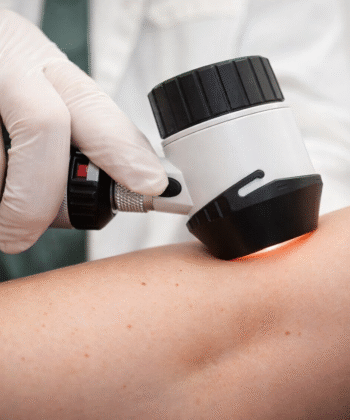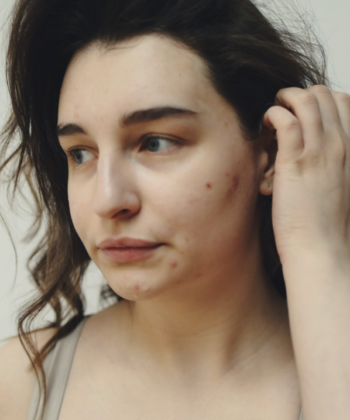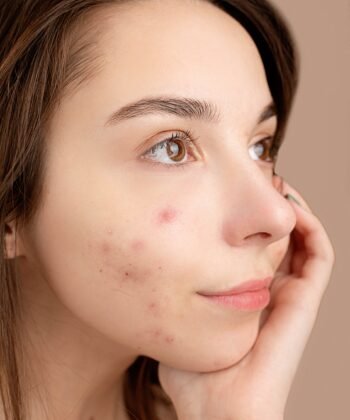Why Does My Mole Itch?
Itching or pruritus is often a sign of dryness or irritation of the skin’s surface. As a result, our skin’s nerve endings, also known as pruriceptors, are stimulated. And this sensation helps alert us to any damage we may have sustained to our skin, for example, a mosquito bite or even a toxic substance. Of course, there are other inflammation causes, such as liver disease or skin cancer. But a red itchy mole or an itchy mole on your back can soon feel intolerable. Therefore, it’s best to find out more about what you are dealing with when it comes to moles that itch.

What does an itchy mole mean?
First and foremost, don’t panic. There are many reasons why this could be the case. An itchy mole on your neck, for example, is not necessarily a sign of skin cancer. But what does it mean when a mole is itchy?
Cancer cells can irritate our nerve endings but don’t be alarmed by the first sign of itching. It doesn’t always mean an itchy raised mole is a sign of skin cancer. So it is important to investigate the conceivable reasons behind mole itching. For example, moles itching could result from it getting scratched or a small cut, even a change in laundry detergent. You can answer questions that can help you distinguish between treating it with a topical cream, for example, or booking an appointment with a dermatologist/your doctor.
If you are asking yourself, ‘Why is my mole itchy?’ Take a look at the list below for some of the frequent signs to look for with cancerous moles.
Signs of skin cancer
Common symptoms of skin cancer:
- The size of the mole has increased
- A mole that bleeds and itches, or bleeds easily
- If there is an abrasion, it has not healed within four weeks
- The mole looks different. For example, it could have a bumpy or irregular surface and borders
- A mole that has become more raised as time passes
- New moles have emerged on your skin
- The colour of the mole has changed from brown to black
Another question you may ask is, did the itch come on suddenly? Is it a new itchy mole? If you feel that your mole is itchy in a sudden way but eases off after a time, then it could be that a minor trauma to your skin has healed. Inspect the mole and surrounding skin to look for other factors like inflammation or a rash. If you are still unsure, ask your doctor to look as soon as you can.
Do cancerous moles itch?
The three common types of skin cancer are basal cell carcinoma, melanoma and squamous cell carcinoma.
A study in 2014 on suspicious skin legions found that one-third of cancer legions are accompanied by itching, and less than a third were described as painful.
The study also found that basal cell carcinoma and squamous cell carcinoma are more likely to cause itching and pain than melanoma. However, if left untreated, melanoma symptoms are much more severe than non-melanoma skin cancers. So if, for example, you feel pain and itching in multiple areas of your body, or if anything looks suspicious, like an itchy raised mole, you should get in touch with your doctor.
That’s why it’s always important to be alert and watch for any changes in your skin. For example, is the mole raised and itchy? What about the colour of the mole?
Don’t be alarmed by the first itching, but look out for the other mentioned symptoms, like mole bleeding. Contact your doctor if you still have a reason for suspicion, significantly if the itchy mole doesn’t dissipate over time.
The Dermatology Clinic, London, offers comprehensive mole screenings with top consultant dermatologists. Click here to find out more and book your consultation.

Medically reviewed by Dr. Daniel Glass
UK trained Consultant Dermatologist Dr Daniel Glass is a General Medical Council registered skin specialist, qualified in both adult and paediatric Dermatology.












